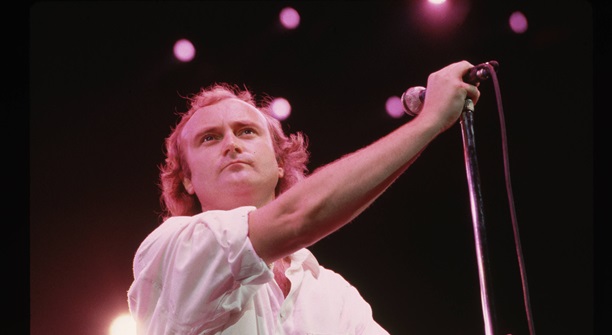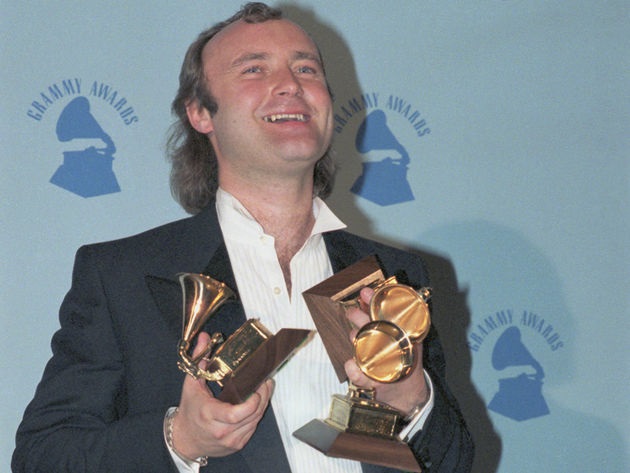Introduction: Phil Collins Age
Few names in the music world evoke as much admiration and respect as Phil Collins. Born on January 30, 1951, Collins has enjoyed a multi-decade career, excelling as a drummer, vocalist, songwriter, and producer. Whether as a solo artist or a key member of the band Genesis, Phil Collins has created a massive catalog of hits that transcend genres and generations.
As of 2024, Phil Collins age is 73, and although health issues have slowed him down in recent years, his influence on the world of music is undeniable. This article will provide a detailed overview of Phil Collins’ life, from his early years and rise to fame with Genesis to his highly successful solo career, personal life, challenges, and the immense impact he has left on the global music scene.
Wiki Bio
| Attribute | Details |
|---|---|
| Full Name | Philip David Charles Collins |
| Born | January 30, 1951 |
| Age | 73 (as of 2024) |
| Birthplace | Chiswick, London, England |
| Nationality | British |
| Occupation | Musician, Singer, Songwriter, Record Producer, Actor |
| Genres | Rock, Pop, Progressive Rock, Soft Rock, Jazz Fusion |
| Instruments | Drums, Vocals, Piano, Keyboards |
| Years Active | 1963–2011, 2015–present |
| Famous As | Drummer and Lead Vocalist of Genesis; Solo Artist |
| Notable Songs | “In the Air Tonight”, “Against All Odds”, “Another Day in Paradise” |
| Debut Solo Album | “Face Value” (1981) |
| Associated Acts | Genesis, Brand X |
| Spouse(s) | Andrea Bertorelli (1975–1980) Jill Tavelman (1984–1996) Orianne Cevey (1999–2008) |
| Children | 5 (including actress Lily Collins and musician Simon Collins) |
| Net Worth | Estimated $300 million (2024) |
| Awards | 8 Grammy Awards, 1 Academy Award, 2 Golden Globe Awards, 6 Brit Awards |
| Health Issues | Spinal injuries affecting mobility, nerve damage |
| Notable Film Contributions | “You’ll Be in My Heart” (Tarzan), Buster (1988) |
| Rock and Roll Hall of Fame | Inducted as a member of Genesis (2010) |
Table of Contents
Phil Collins’ Early Life and Introduction to Music

Phil Collins was born in Chiswick, London, England. His love for music began at a very young age, when his parents bought him a toy drum set. By the time he was five, his drumming skills had already become apparent. His parents, particularly his mother, June, who was a theatrical agent, encouraged his musical pursuits. This support would be a crucial factor in his later success.
The Early Days of Phil Collins’ Career
Before his breakthrough in the music industry, Phil Collins took a brief detour into acting. As a child actor, he appeared in several productions, including an uncredited role in the classic film A Hard Day’s Night by The Beatles. However, music was always his true passion, and he continued honing his drumming skills throughout his adolescence.
Phil Collins joined his first band, The Real Thing, in 1963, followed by stints in other local groups such as Freehold and Flaming Youth. It was during these formative years that Collins’ drumming prowess began to gain attention in London’s music scene.
Joining Genesis: The Turning Point
In 1970, Collins saw an ad in the Melody Maker magazine seeking a drummer for the band Genesis. The band, formed in 1967 by Tony Banks, Mike Rutherford, Peter Gabriel, and Anthony Phillips, was already making waves in the progressive rock scene, but they were in need of a skilled drummer. Collins auditioned and got the job, marking the start of one of the most iconic partnerships in rock music.
Early Years with Genesis: Progressive Rock Innovators
During the early 1970s, Genesis was known for its complex, experimental style of progressive rock, characterized by intricate instrumentation, long-form compositions, and Peter Gabriel’s theatrical stage presence. As the drummer, Phil Collins played a crucial role in defining the band’s sound during this era. Albums like “Nursery Cryme” (1971), “Foxtrot” (1972), and “Selling England by the Pound” (1973) are now regarded as progressive rock classics.
Collins’ drumming, which combined technical precision with emotional depth, quickly earned him a reputation as one of the best drummers in the business. His ability to switch between complex time signatures and groove-heavy rhythms made him a standout in the prog-rock world.
The Shift to Lead Vocalist: Peter Gabriel’s Departure
In 1975, Peter Gabriel, the band’s charismatic frontman, decided to leave Genesis to pursue a solo career. Rather than seeking an outside replacement, the band members considered an internal solution. After auditioning several singers, the band realized that Phil Collins, who had occasionally provided backing vocals, was the perfect fit for the lead vocal role.
Taking over as the lead singer marked a significant turning point for both Collins and the band. While Genesis retained its progressive rock roots, they began shifting towards a more accessible, pop-oriented sound. Collins’ soulful, emotive voice added a new dimension to the music.
Phil Collins’ Genesis Hits and Success as Frontman

With Collins as the lead singer, Genesis entered a new phase of commercial success. The first album with Collins on lead vocals, “A Trick of the Tail” (1976), was a critical and commercial success, showcasing his ability to carry the band vocally without sacrificing their musicianship. This was followed by equally successful albums such as “Wind & Wuthering” (1977) and “…And Then There Were Three” (1978).
By the 1980s, Genesis had fully embraced a more mainstream pop-rock sound, and their albums began topping charts worldwide. The release of “Duke” (1980) marked a pivotal moment for the band, with hit singles like “Turn It On Again”. This was followed by the hugely successful “Abacab” (1981), which further propelled the band into the pop stratosphere.
Phil Collins’ role in Genesis was now undeniable, both as a frontman and a major contributor to their songwriting process. The band’s albums throughout the ’80s, including “Genesis” (1983) and “Invisible Touch” (1986), produced multiple hits, with songs like “Invisible Touch”, “Land of Confusion”, and “Tonight, Tonight, Tonight” achieving global success.
Solo Career: Phil Collins as a Global Superstar
“Face Value” and the Breakthrough of “In the Air Tonight”
While Collins was enjoying massive success with Genesis, his solo career took off in 1981 with the release of his debut album, “Face Value”. The album was a deeply personal project, influenced by the emotional turmoil he was going through during his divorce from his first wife, Andrea Bertorelli. The album’s lead single, “In the Air Tonight”, became an international hit and is now considered one of the defining songs of the 1980s. The track’s eerie, atmospheric production, combined with its famous drum break, solidified Collins as a solo star.
1980s Solo Success: “No Jacket Required” and More
Phil Collins followed up “Face Value” with a string of successful albums throughout the 1980s, including “Hello, I Must Be Going!” (1982) and “No Jacket Required” (1985). The latter became one of the best-selling albums of the decade, featuring hits like “Sussudio”, “One More Night”, and “Take Me Home”. The album won Collins a Grammy Award for Album of the Year and cemented his status as a global pop icon.
His ability to blend rock, pop, and soul elements into catchy, emotionally resonant songs made him one of the most versatile artists of the decade. Collins also gained recognition for his live performances, both as a solo artist and with Genesis. His Live Aid performance in 1985, where he famously performed in both London and Philadelphia on the same day, is one of the most memorable moments in rock history.
Phil Collins’ Film Contributions: A Different Artistic Avenue
In addition to his solo music career, Phil Collins made significant contributions to film soundtracks, earning further accolades and expanding his influence. In the late 1990s, Collins worked with Disney to compose the soundtrack for the animated film “Tarzan” (1999). His song “You’ll Be in My Heart” became a massive hit and won him both an Academy Award and a Golden Globe for Best Original Song. The Tarzan soundtrack was a commercial success, and Collins’ work in film scores further demonstrated his versatility as a composer.
Phil Collins Net Worth and Financial Success

By 2024, Phil Collins’ net worth is estimated to be around $300 million. Much of this wealth has been accumulated from his extensive career in music, both with Genesis and as a solo artist. Collins has sold over 100 million albums worldwide as a solo artist and another 150 million albums with Genesis. He also earns substantial royalties from his music catalog, which includes some of the most iconic songs of the past five decades.
In addition to album sales and royalties, Collins has made millions from touring. His solo tours have been among the highest-grossing tours in history, and Genesis reunion tours have also been incredibly lucrative. In recent years, he has sold portions of his publishing rights, adding to his already considerable fortune.
Phil Collins’ Personal Life: Marriages, Children, and Health Struggles
Marriages and Family
Phil Collins has been married three times. His first marriage was to Andrea Bertorelli in 1975, with whom he had one son, Simon Collins, who has followed in his father’s footsteps as a musician. After their divorce, Collins married his second wife, Jill Tavelman, in 1984, and they had a daughter, Lily Collins, now a successful actress. This marriage ended in divorce in 1996.
Collins’ third marriage was to Orianne Cevey in 1999, and they had two sons, Nicholas and Matthew. However, this marriage also ended in divorce in 2008, reportedly one of the most expensive celebrity divorces at the time. Despite their separation, Collins and Cevey rekindled their relationship years later, though they eventually split again.
Health Issues
In recent years, Phil Collins has struggled with significant health problems, particularly related to his spine and nerves. These issues began in the early 2010s and worsened over time, leading to his retirement from drumming. Collins underwent several surgeries to correct issues with his vertebrae, but the damage left him unable to play the drums as he once did. During live performances in recent years, he has often been seen performing while seated due to his limited mobility.
Despite these health challenges, Collins has remained active in the music industry, performing in reunion tours with Genesis and continuing to release new music. His resilience in the face of these difficulties has earned him admiration from fans and fellow musicians alike.
Phil Collins’ Legacy and Influence on Music
Over the course of his career, Phil Collins has left an indelible mark on the world of music. He is one of the few artists to have achieved massive success both as part of a band and as a solo artist. His work as a drummer, singer, and songwriter has influenced countless musicians across genres, from rock and pop to hip-hop and electronic music.
Collins is often cited as one of the greatest drummers in rock history, and his distinctive vocal style, characterized by its emotional intensity and clarity, has inspired a new generation of singers. His ability to fuse pop sensibility with complex musical arrangements has made his work timeless.
Phil Collins’ Awards and Recognition

Throughout his career, Phil Collins has received numerous awards, including:
- 8 Grammy Awards
- 1 Academy Award for Best Original Song (You’ll Be in My Heart)
- 2 Golden Globe Awards
- 6 Brit Awards
- 1 Disney Legend Award
He has also been inducted into the Rock and Roll Hall of Fame as a member of Genesis and has a star on the Hollywood Walk of Fame.
Conclusion: Phil Collins at 73 – A True Music Icon
At 73 years old, Phil Collins remains one of the most influential and beloved figures in music history. Despite facing health challenges and stepping away from full-time performing, his contributions to both Genesis and his solo career continue to resonate with fans around the world. His unique blend of technical mastery, emotional depth, and commercial appeal has ensured that his music will be remembered for generations to come. Phil Collins is, without a doubt, a true icon in the annals of rock and pop history.
Also read – Dove Cameron Age, Net Worth 2024, Bio, and More

